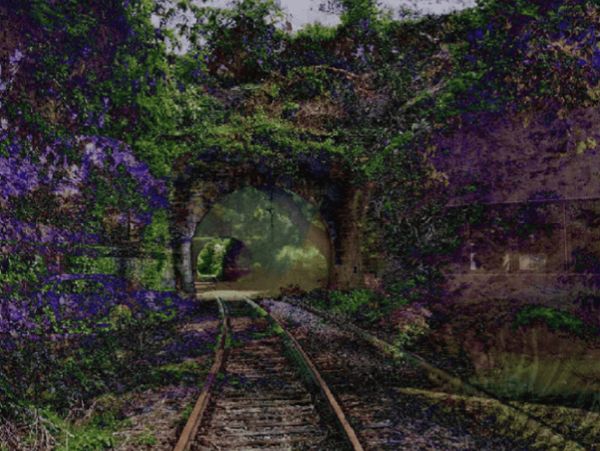Federal Judge Rules that AI-Generated Content Is Not Copyrightable
Last Friday, a federal judge issued the United States' first opinion that AI content generated autonomously without human involvement is not copyrightable under United States copyright law.
Plaintiff Stephen Thaler developed an artificial intelligence he dubbed the "Creativity Machine," which, in turn, created a work titled "A Recent Entrance to Paradise," depicted below. Thaler attempted to register the copyright in "A Recent Entrance to Paradise," listing the Creativity Machine as the author and claiming that he should own copyright under the work for hire doctrine as the owner of the Creativity Machine. The United States Copyright Office denied registration because it determined that "A Recent Entrance to Paradise" lacked human authorship. Thaler filed two requests for reconsideration with the Copyright Office and then ultimately appealed to federal court when those two requests were denied.

"A Recent Entrance to Paradise "
Thaler argued that United States copyright law is flexible and has covered creative works developed through new technologies in the past. As a result, copyright law should also be able to cover AI-generated works. While Judge Beryl A. Howell agreed that copyright is meant to adapt to new types of expression, she nevertheless made it clear that human creativity is at the core of copyrightability, "even as that human creativity is channeled through new tools or into new media." Thaler v. Perlmutter, No. 22-1564 (BAH), 8 (D.D.C. August 18, 2023). AI is capable of generating works without any human guidance, and it is this human guidance that is key in copyrightability and that distinguishes AI from other forms of technology that may be able to generate creative works.
Judge Howell ultimately determined that this case was a straightforward question of human authorship. Thaler claimed in his application that the work was created "autonomously by machine" and that his ownership of the copyright resulted, not from his own authorship, but from his ownership of the AI that generated the work. Thaler v. Perlmutter, No. 22-1564 (BAH), 14 (D.D.C. August 18, 2023). Judge Howell therefore determined that, because there was no human involvement in the creation of the work, the Copyright Office was correct to deny registration.
Thaler's attorney responded that "in our view, copyright law is clear that the American public is the beneficiary of the law, and the public benefits when the generation and dissemination of works is encouraged, regardless of how the works are made." Adam Lidgett, AI-Generated Art Isn't Copyrightable, Judge Rules, Law360 (Aug. 18, 2023), https://www.law360.com/ip/articles/1712946?nl_pk=aa662df3-92ea-49a8-b81c-a39a15ab91d1&utm_source=newsletter&utm_medium=email&utm_campaign=ip&utm_content=2023-08-21&read_main=1&nlsidx=0&nlaidx=1. Recent reports indicate that his client intends to appeal the decision. Zachary Small, As Fight Over A.I. Artwork Unfolds, Judge Rejects Copyright Claim, The New York Times (Aug. 21, 2023), https://www.nytimes.com/2023/08/21/arts/design/copyright-ai-artwork.html.
Judge Howell did acknowledge that many questions remain with regard to copyrights and AI-generated content, including (1) "how much human input is necessary to qualify the user of an AI system as an 'author' of a generated work;" (2) "the scope of the protection obtained over the resultant image;" (3) "how to assess the originality of AI-generated works where the systems may have been trained on unknown pre-existing works;" and (4) "how copyright might best be used to incentivize creative works involving AI." Thaler v. Perlmutter, No. 22-1564 (BAH), 13 (D.D.C. August 18, 2023).
These are difficult questions, and more United States courts will need to address them as AI is further integrated into various areas of society. In fact, the question of the originality of AI-generated works where AI has been trained by pre-existing works is already the subject of multiple pending lawsuits. Zachary Small, As Fight Over A.I. Artwork Unfolds, Judge Rejects Copyright Claim, The New York Times (Aug. 21, 2023), https://www.nytimes.com/2023/08/21/arts/design/copyright-ai-artwork.html. For now, at least, Thaler v. Perlmutter establishes a starting point that a work autonomously generated by AI with no human involvement is not subject to copyright protection. We will be keeping an eye on this area of law as it develops.
The content of this article is intended to provide a general guide to the subject matter. Specialist advice should be sought about your specific circumstances.


